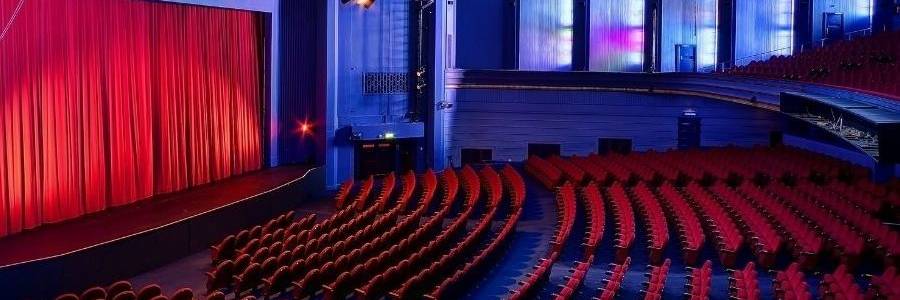




Ipswich Regent first opened its doors in 1929 and has since played host to thousands of musicians, comedians and entertainers, from the Beatles and Rolling Stones to the Royal Ballet and National Theatre.
The Regent Theatre Ipswich opened in 1929 as a cine-variety hall. At 7.00pm on Monday November 4th, the entrance doors of the new Regent, Ipswich opened and into its spacious foyer crowded nearly 2,000 Ipswich people who had come to witness this momentous occasion.
Outside the theatre a large queue had formed, filing past Botwoods Garage. As a Ransomes steam lorry tooted its whistle, the staff of the Regent lined up for their first inspection by the manager, Albert E. Crabb who checked their ‘electric’ torches.
On the stage, the Mayor of Ipswich, Dr Hossack, performed the opening ceremony; musical numbers were played on the brand new Wurlitzer organ by the resident organist Frank Newman F.R.C.O. that included the Merry Wives of Windsor by Otto Nicolai. The film chosen to open the venue then began – “The Last of Mrs Cheyney” starring Norma Shearer and Basil Rathbone – an ‘all-talking’ picture with front circle seats costing 2s / 4d.
The luxurious Regent restaurant enhanced a visit to the theatre and, if desired, tea could be served in any of the fourteen boxes at the rear of the stalls. The boxes and the Manager’s cottage at the rear of the theatre are unique features of the Regent.
Before World War II, the stage was not used to any great extent, although up to the mid-1930’s, the 18 piece Regent Orchestra, under the direction of Louis Baxter frequently entertained the audiences. Most theatre orchestras were disbanded in the late 1930’s and the organ then became the principal musical attraction.
During the war the Regent provided much needed escapism and helped sustain public morale. After the war, The Regent flourished and enjoyed an attendance boom. Also during this period, the stage was employed in the presentation of Ipswich Civic Concerts. The stage was also used for the presentation of Sadler’s Wells Ballet, Carl Rosa Opera and one-night band shows.
The popularity of cinema in the 1930’s and 40’s was so great that another cinema in Ipswich, The Ritz, was opened in 1937. But the advent of television in the 1950’s proved a testing time for cinemas up and down the country and even the highly successful Regent, by now known as the Gaumont, did not survive intact. To allow the cinema to become more profitable, the restaurant was closed down and replaced by the Victor Sylvester Dance Studio.
In the late 1950’s the ‘pop’ music phenomenon exploded. Buddy Holly and the Crickets started off the craze at the Gaumont and since then thousands of international artists have graced the theatre’s stage including the Beatles, Tina Turner, The Bay City Rollers, Tom Jones, Chris Rea, Status Quo and many of today’s top artistes.
From 1958, local musicians and dramatic societies were encouraged to perform at East Anglia’s largest theatre. These included the Ipswich Operatic Society, the Gilbert and Sullivan Society and later the Co-op Juniors. The programme has since included a wide range of productions including professional touring theatre, opera, ballet, comedy and full-scale orchestras.
By 1965 the proprietors, The Rank Organisation, were sufficiently confident of the future to spend £50,000 on a major modernisation and redecoration programme. But by the 1970’s, the large cinemas that had been so successful in the 30’s and 40’s proved to be less economically viable.
The Gaumont’s dance studio was converted to a luxury 200-seat cinema, which could be rented out for use by the local business community. Rank also proposed to convert the main auditorium to a multi-screen complex. However, after a great deal of persuasion, Rank’s plans were abandoned because the auditorium was established as the only local venue of sufficient capacity to stage live shows and concerts despite its limited performance facilities.
The theatre was re-launched in September 1991 after Ipswich Borough Council successfully negotiated the ownership from the Rank Organisation and NCP. Today, Ipswich Borough Council continues to fund the theatre as part of its arts and entertainment portfolio which also includes the Corn Exchange and Ipswich Film Theatre.